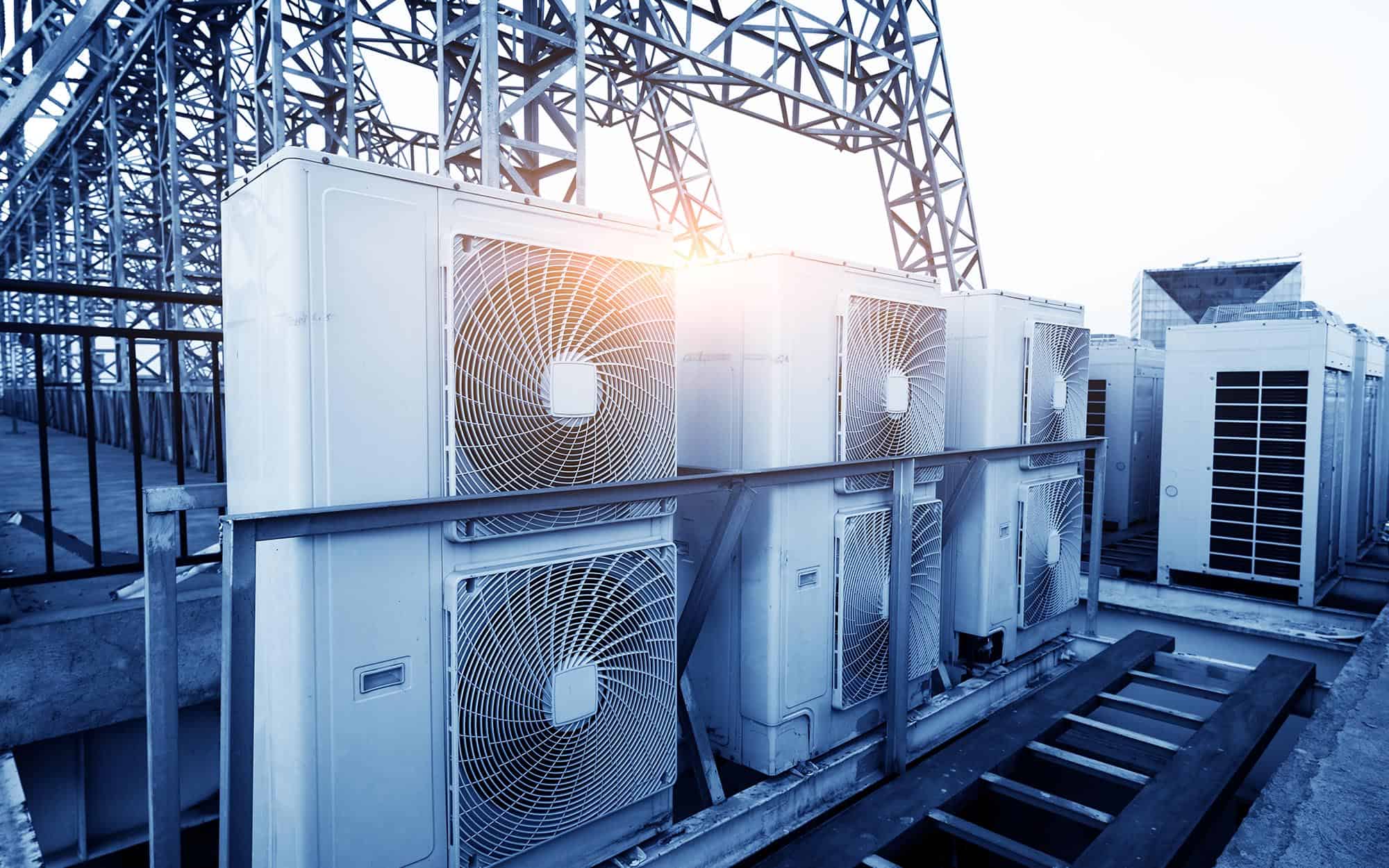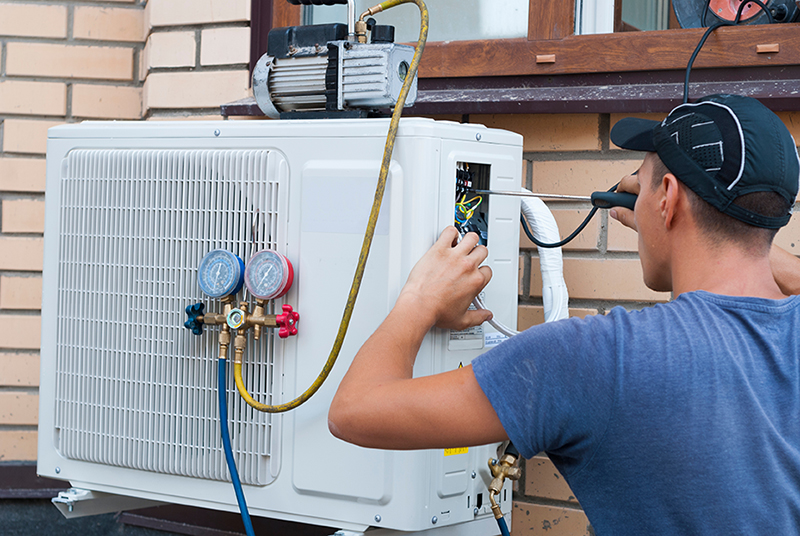Your Overview to Selecting the Right HVAC System for Your Needs
Choosing a suitable HVAC system is an essential choice that can considerably impact convenience and energy performance in your home. In addition, recognizing the various kinds of systems available and their power ratings can aid guide your selection.
Recognizing A/c System Kind
When choosing a heating and cooling system, it is important to comprehend the numerous kinds offered to fulfill your particular needs. The primary categories of cooling and heating systems include main air conditioning systems, ductless mini-split systems, warm pumps, and furnace systems.
Air conditioning systems are made to cool numerous rooms using ductwork to disperse conditioned air. They are ideal for bigger homes calling for constant temperature control. Ductless mini-split systems, on the various other hand, give adaptability and performance, as they enable zoning capacities, enabling individual area temperature level law without the requirement for ductwork.
Warm pumps operate by moving heat instead of producing it, making them an energy-efficient alternative for both heating and air conditioning. They are especially efficient in moderate environments. On the other hand, furnace systems make use of burning to produce warm, making use of either electrical energy, oil, or gas. They are favored in cooler areas where heating needs are substantial.
Each system has distinctive advantages and considerations, consisting of installation requirements, maintenance, and total prices. Understanding these kinds will certainly help homeowners make informed choices based upon their particular needs, climate, and budget constraints, ultimately ensuring optimum convenience and performance.
Evaluating Power Effectiveness
Energy performance is a crucial variable in the selection of a cooling and heating system, as it directly affects both energy prices and environmental sustainability. When assessing power efficiency, numerous metrics and scores can assist guide your decision. The Seasonal Power Effectiveness Ratio (SEER) and the Heating Seasonal Efficiency Aspect (HSPF) are important indicators for air conditioning systems, representing their efficiency over a normal air conditioning and heating period, respectively. Higher SEER and HSPF ratings show better power efficiency, leading to lowered energy intake.
Additionally, try to find systems that have earned the ENERGY STAR tag. This qualification symbolizes that the equipment satisfies strict energy performance standards established by the U.S. Epa. Take into consideration the system's variable-speed modern technology, which permits for more efficient operation by adjusting the outcome to match demand, better improving power cost savings.
Moreover, appropriate insulation and air duct securing can substantially influence the system's general performance. In recap, choosing an energy-efficient heating and cooling system not just lowers your power bills but also adds to an extra lasting environment, making it a vital factor to consider in your investing in process.
Assessing System Size
Choosing the appropriate size for an a/c system is vital to making sure optimum efficiency and performance. A small system might have a hard time to maintain preferred temperature levels, leading to raised deterioration, higher power intake, and lessened comfort. On the other hand, an extra-large system can result in quick cycling, which not just triggers inadequacies but likewise impacts moisture control and air high quality.
To evaluate the optimal sizing, top article it is vital to perform a load estimation, which thinks about aspects such as the square video of the area, insulation degrees, window sizes, and regional climate conditions - boilder repair. This estimation aids figure out the British Thermal Devices (BTU) needed for heating & cooling. Additionally, it is crucial to make up specific demands, such as the variety of residents and the visibility of heat-generating devices

Setup Costs and Spending Plan
A detailed understanding of installation costs is essential for homeowners and organizations thinking about a brand-new heating and cooling system. The complete cost of installment can vary widely based on a number of elements, consisting of the kind of system, the complexity of setup, and the area of the building. On average, installment expenses can vary from $3,000 to $10,000, relying on the system's size and performance.
When budgeting for an a/c system, it is crucial to take into consideration not only the preliminary setup expenses but additionally any extra costs that might develop, such as ductwork modifications, electric upgrades, or licenses. In addition, it is advisable to get multiple quotes from accredited heating and cooling contractors to ensure affordable rates.
Property owners must also factor in the potential lasting financial savings related to energy-efficient systems. While the in advance prices you can check here may be greater, energy-efficient models can result in substantial cost savings on utility costs gradually.

Upkeep and Long Life Considerations

Proper upkeep includes routine evaluations, filter substitutes, and cleansing of ducts and coils (air duct cleaning coquitlam). Ignoring these tasks can bring about lowered efficiency, enhanced energy expenses, and premature system failure. Homeowners should also think about the schedule of service contracts, which typically give scheduled upkeep and top priority solution, making sure that the system continues to be in peak condition
Long life differs by system kind; as an example, properly maintained central air conditioning systems can last 15 to twenty years, while heatpump might have a life expectancy of 10 to 15 years. Selecting a system with a solid credibility for integrity, together with spending in routine upkeep, can significantly boost the system's toughness. Additionally, choosing for higher-efficiency designs may lead to long-lasting cost savings on energy bills, stabilizing the preliminary investment in time.
Verdict
In conclusion, selecting a suitable HVAC system requires cautious consideration of different variables, including system types, energy efficiency, and dimension. Ultimately, a well-informed choice will improve comfort and effectiveness in household settings while making the most of power financial savings.
Picking an ideal A/c system is an important choice that can significantly influence convenience and power performance in your home.Energy efficiency is an essential element in the option of a HVAC system, as it straight impacts both energy expenses and environmental sustainability. The Seasonal Power Efficiency Proportion (SEER) and the Heating Seasonal Performance Aspect (HSPF) are important indicators for air conditioning systems, representing their performance over a typical air conditioning and home heating season, specifically. Choosing a system with a solid credibility for dependability, along with spending site in routine upkeep, can significantly improve the system's durability.In final thought, choosing a proper HVAC system necessitates mindful consideration of various elements, consisting of system types, power performance, and size.